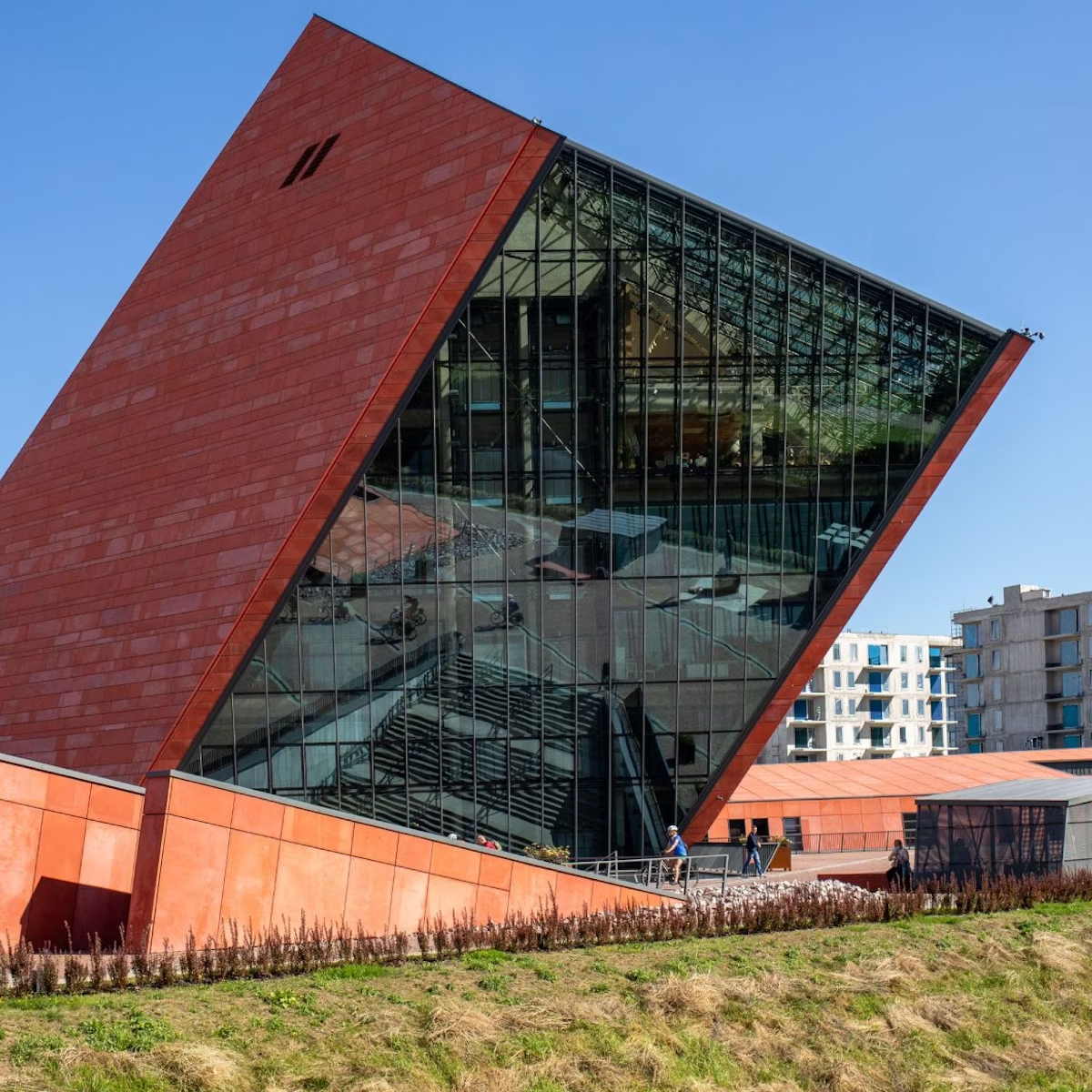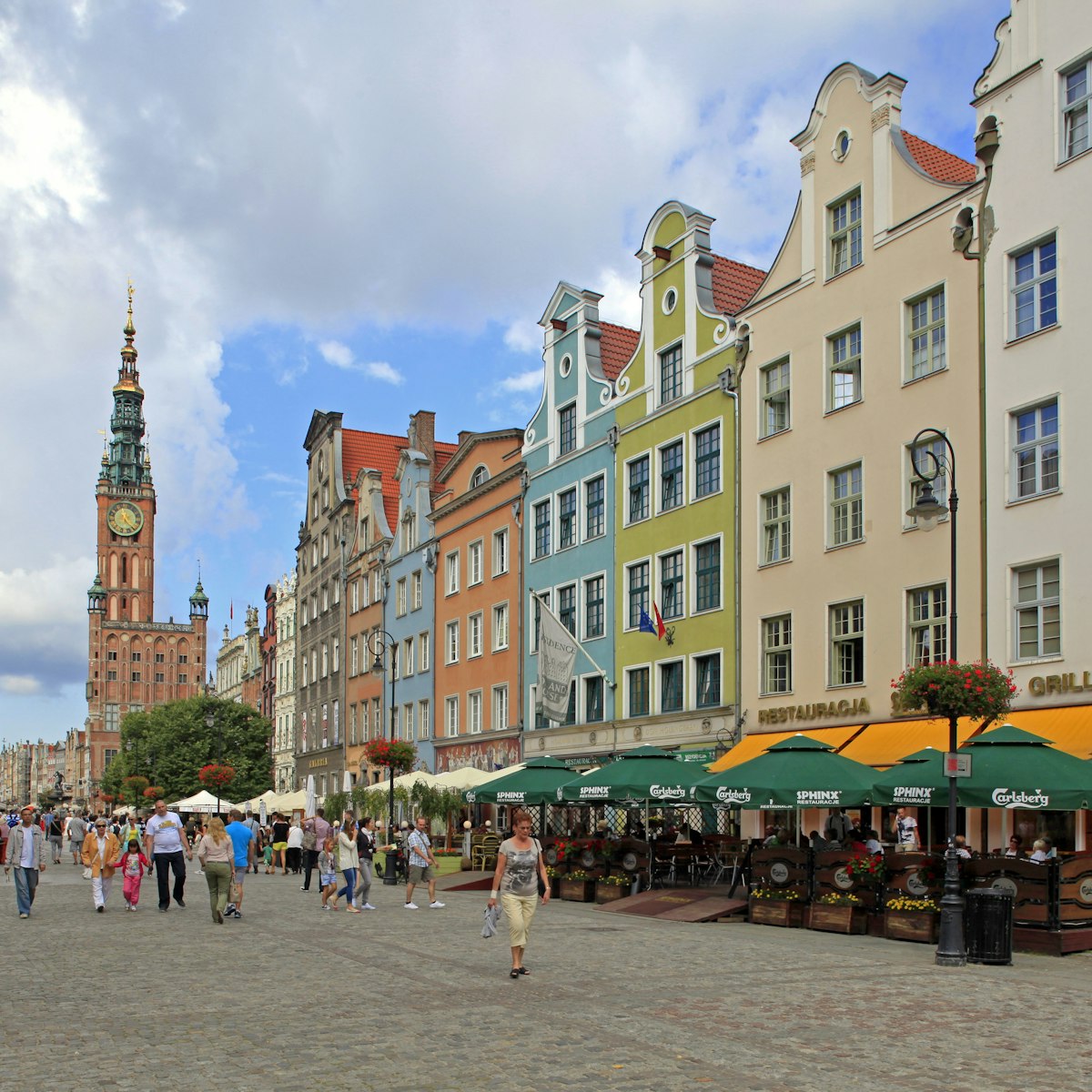Rising in all its embellished grandeur behind the Neptune Fountain, the Artus Court is perhaps the single best-known house in Gdańsk. The court has been an essential stop for passing luminaries ever since its earliest days, and a photo display in the entrance shows an enviable selection of famous visitors, from King Henry IV of England to a host of contemporary presidents. It was comprehensively destroyed during WWII but was painstakingly restored from old photographs and historical records.
Built in the middle of the 14th century, the court was given its monumental facade by Abraham van den Block in the 1610s. Inside, there’s a huge hall topped by a Gothic vault supported on four slim granite columns, decorated with hunting murals and dominated by a vast painting depicting the Battle of Grunwald. Wealthy local merchants used the building as a communal guildhall, holding meetings, banquets and general revelries in the lavishly decorated interior.
The plainly renovated upper floors hold a selection of historical exhibits, including a photographic ‘simulacrum’ of how the great hall would have looked at its peak, a breathtaking spectacle.
One unique feature of the interior is its giant Renaissance tiled stove, standing in the corner of the hall and almost touching the ceiling. It’s reputedly the highest stove of its kind in Europe containing 520 tiles, 437 of which are originals.







